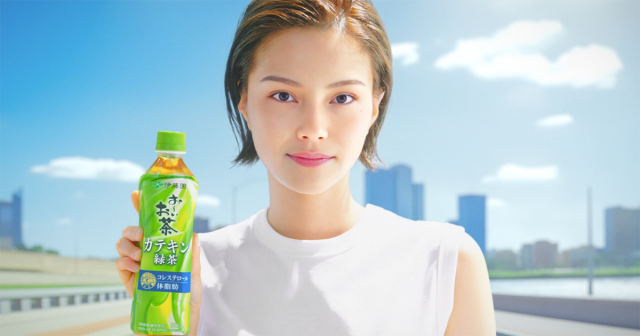
TL;DR
- Virtual influencers are disrupting industries from e-commerce and marketing to pop music, raking in followers and profits.
- In South Korea, these AI-generated personalities are embraced as scandal-free alternatives to human celebrities, becoming deeply integrated into both pop culture and the business landscape.
- In the music industry, AI-generated pop stars are landing record deals and creating a divide among artists over the role of AI in music.
- Ethical concerns arise as these AI personas become more human-like, prompting calls for global regulatory action.
As digital screens become more embedded in our daily lives, the line between the virtual and the tangible is becoming increasingly blurred. Meet virtual influencers: AI-generated personalities that are racking up followers, signing record deals, and even out-earning their human counterparts. From dominating Instagram in South Korea to revolutionizing e-commerce in China, these digital darlings are not just a technological marvel but a cultural phenomenon, raising questions about authenticity, ethics, and the future of influence itself.
The Rise of Virtual Influencers
In the fast-paced world of social media marketing, innovation is the name of the game. Brands are always on the hunt for fresh ways to engage audiences, and virtual influencers are emerging as the new frontrunners in this digital race. Far from being mere eye candy, these AI-generated personalities are proving to be formidable players in the marketing arena.
What sets virtual influencers apart from their IRL counterpoints is their meticulously crafted personas. Free from the vulnerabilities and controversies that often plague human influencers, these digital avatars offer an idealized image that’s hard to resist. Writing on Medium, influencer marketing specialist James Sterling notes how they are “a cost-effective and flexible way to produce content and promote brands. They don’t age, get sick, or have scandals.”
When it comes to ROI, virtual influencers are a marketer’s dream come true. Operating around the clock without the need for breaks, benefits, or bonuses, they offer unparalleled economic advantages. As Sterling notes, “Brands can clone a human streamer to work 24/7.”
For audiences, virtual influencers “are a source of entertainment, inspiration, and connection,” says Sterling. “They provide an escape from reality and a glimpse into a fantasy world.”
Examples include Lil Miquela, a 19-year-old Brazilian-American model and musician, and Shudu Gram, a South African supermodel. Contrary to what one might expect, these artificial entities are remarkably skilled at forming genuine connections with their audience. Their interactions are so convincingly human-like that they often blur the lines between reality and simulation.
One of the most compelling features of virtual influencers is their adaptability. “Their personas can be fine-tuned to resonate with specific demographic groups,” Sterling explains, making them invaluable tools for targeted marketing campaigns.
While the ascent of virtual influencers is undoubtedly exciting for marketers, it’s not without its ethical pitfalls. As Sterling warns, the technology behind these digital personalities has the potential for “problematic use in revenge porn, identity scams, and political misinformation.”
READ MORE: How AI-Generated Virtual Influencers Are Changing the Face of Social Media Marketing (James Sterling)
The Global Phenomenon: South Korea’s Obsession
In South Korea, a country celebrated for its technological advancements and cultural exports, virtual influencers are becoming more than just a trend — they’re a societal phenomenon. But what makes South Korea such fertile ground for these AI-generated personalities? The Economist provides some compelling insights.
In the wake of recent scandals involving South Korean television presenters, the country is finding a less problematic solution in virtual humans. As The Economist points out, these digital figures are “increasingly common globally” but have found a unique resonance in South Korea due to their scandal-free nature. “Within the past year one [TV presenter] was fired for swearing on live television and another for slandering a dead comedian,” the article notes, highlighting the pitfalls of human celebrities.
The Economist introduces us to Rozy, South Korea’s first virtual influencer, who has become a sensation since her Instagram debut in 2020. Created by Seoul-based firm Locus-X, Rozy is a “beautiful 22-year-old who works as a singer, model, and a sustainability champion.” She’s not just popular; she’s profitable. “Rozy… is estimated to have made more than 2.5 billion won ($1.8 million) last year.”
Virtual influencers in South Korea are not just cultural phenomena; they’re also economic assets, and these virtual figures have become deeply integrated in both pop culture and the business landscape. Rozy, for instance, is “best-known for an advert for an insurance company in which she danced across the rooftops of Seoul.”
While The Economist doesn’t delve into this, it’s worth noting that South Korea’s technological infrastructure likely plays a role in the rapid adoption of virtual influencers. The country’s tech-savvy population is more open to new forms of digital interaction, providing a ripe market for these AI-generated personalities.
READ MORE: Virtual influencers are burning up South Koreans’ Instagram feeds (The Economist)
The Music Industry’s New Pop Stars
The music industry, a realm traditionally dominated by human talent and creativity, is undergoing a seismic shift with the advent of virtual influencers. These AI-generated pop stars are not just novelties; they’re landing record deals and even sparking debates among established artists.
BBC technology writers Shiona McCallum and Liv McMahon note that the music industry is no stranger to virtual characters as pop stars, ranging from Gorillaz and Hatsune Miku to Polar and Alvin and The Chipmunks. “Like many of today’s human artists, they’ve won Grammy Awards, held concerts as holograms, and can even be ‘cancelled’ over controversial comments,” they write.
Noonoouri, a digital character created by German designer Joerg Zuber, is merely one of the latest virtual influencers to land a record deal. “Created using motion capture and advanced graphics, she’s been signed to Warner Music as its first avatar artist, rubbing shoulders (virtually) with Ed Sheeran, Dua Lipa, Cardi B and Ashnikko at one of the industry’s biggest labels.”
While some artists like Grimes and David Guetta are embracing AI technology to “experiment with their music production,” others like Sting and Sheeran have voiced criticisms. This divide underscores the complex relationship between technology and artistry in the music industry. Irish musician and singer-songwriter Hozier even told the BBC’s Newsnight that he would “consider striking over the threat posed to the industry by AI.”
READ MORE: Can AI popstars make it in the real world? (BBC)
Jamie Njoku-Goodwin, chief executive of industry association UK Music, tells McCallum and McMahon there is a lot of excitement in the industry about the opportunities AI could provide for artists and producers, but the need for regulation is paramount so it “can enable human creativity, not erode it,” he says.
“It’s about knowing what content and what data AI is being trained on, [and] about ensuring there’s adequate labelling so we know whether or not a piece of music is AI-generated.”
Musicologist Dr. Shara Rambarran, who has written extensively about virtual performers, also has a positive outlook, commenting that while the recent trend of digital pop stars is unlikely to slow down in the future, they don’t present a threat to human artists.
“It’s not a new concept at all, they’ve always existed in some shape or form,” she says. “But will it overtake everything in the music industry? I don’t think so. I think there’s going to be room for everybody. There’s always going to be another innovative creation we’re going to be talking about and if this doesn’t work out, something’s going to replace it.”


